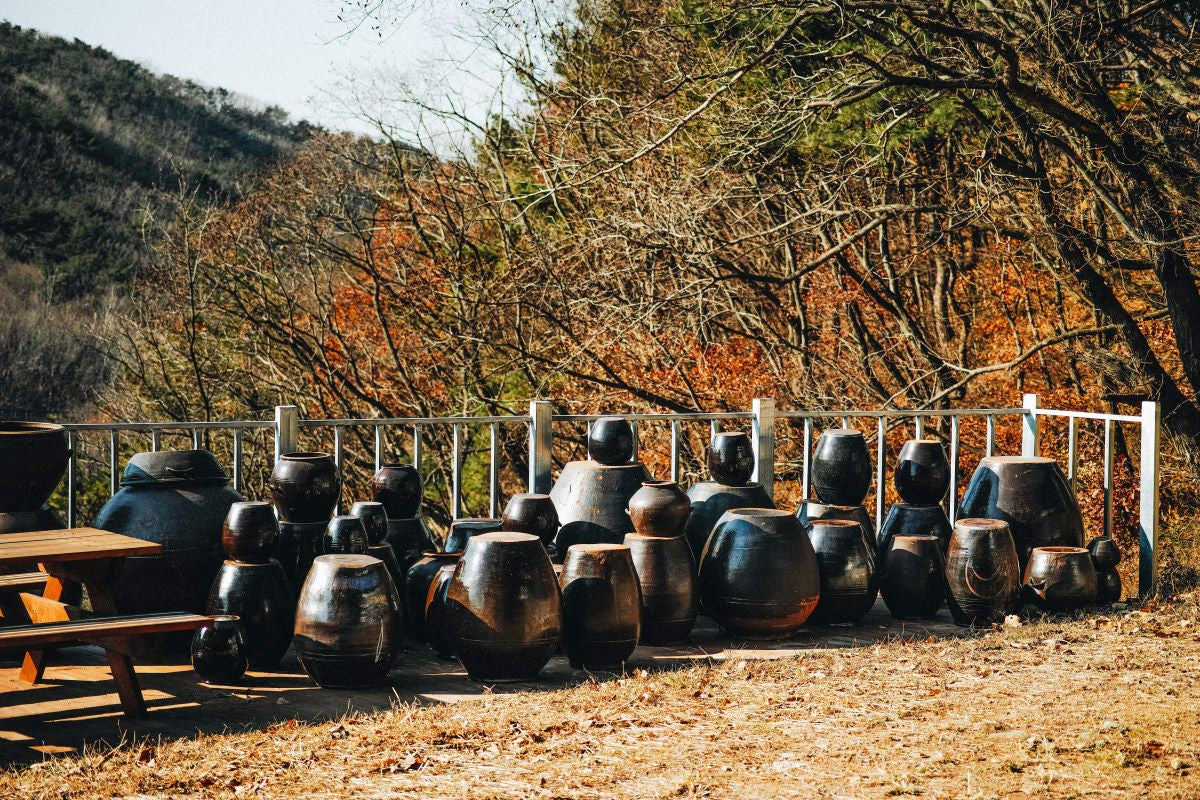Hana Makgeolli: TAKJU 16
- Low stock - 1 item left
Takju 16 is Hana Makgeolli's flagship brew and the ideal introduction to authentic Korean makgeolli. Inspired by the brewer’s own family home-brew recipes, the Takju 16 is a samyangju (3 stage brew--most sake is also a 3-stage brew called sandanjikomi) made with organic rice, nuruk, and filtered water.
Fermented to near dryness, coarsely filtered and undiluted to maintain the full spectrum of flavors typical of a jeontongju (traditionally made Korean alcohol). The Takju 16 starts with the extremely floral, almost melon-like character of fermented rice, which is followed by the brightness of wild yeast, and ultimately balanced against the creaminess of the naturally occurring lactic acid and rice sediment. While the terms takju and makgeolli are technically interchangeable, takju typically refers to a higher alcohol brew.
Region: Brooklyn, NY
Rice Variety: Medium Grain White Rice, Sweet White Rice
Type: 삼양주 (Samyangju- 3 stage addition brew).
Polishing Rate: 0%
ABV: 16%
Ingredients: Rice, Water, 누룩 (Nuruk)
Brewing: 100% 누룩/ wild culture-based 전통주 (Jeontongju) style, fermented for 28 days, sedimented, clarified, unfined, no additives, pasteurized.
Serving Temperature: Cold
Makgeolli is similar to sake in that it uses the same base starch (rice), which is converted to sugar through the action of enzymes produced by microorganisms, fermented to alcohol through the action of yeast, finally landing around 14-16%. The texture is reminiscent of doburoku (or thick nigori) with a flavor profile closest to sake made with bodaimoto natural yeast (see: low intervention sake).
As much as there are similarities between the two rice brews, there are a lot of differences too. The microorganisms are more diverse, consisting not only of aspergillus oryzae mold (koji) but also a collection of other yeast, molds and bacteria (such as lactobacillus, found in yogurt), collectively called nuruk. Where koji is the basis of Japanese alcohol fermentations (sake, shochu) nuruk is the basis of Korean alcohol fermentations (soju, makgeolli, and others). Makgeolli doesn't generally use highly polished rice like sake does, and it can also use different kinds of rice in the same brew (glutinous & regular short grain).
As a result of its method of manufacture and the specific care Alice takes at Hana Makgeolli, her brews' acidity is higher and flavor more pungent than you might be used to with sake. It has a ton of personality and verve, while sharing the cooling and nourishing qualities of nigori.
Like natural sake, Hana Makgeolli can (and should) stand up to big flavors, starting (but not ending!) with kimchi jjigae, KBBQ, kimchi grilled cheese, and the full gamut of H-Mart's deli pickle selection.









